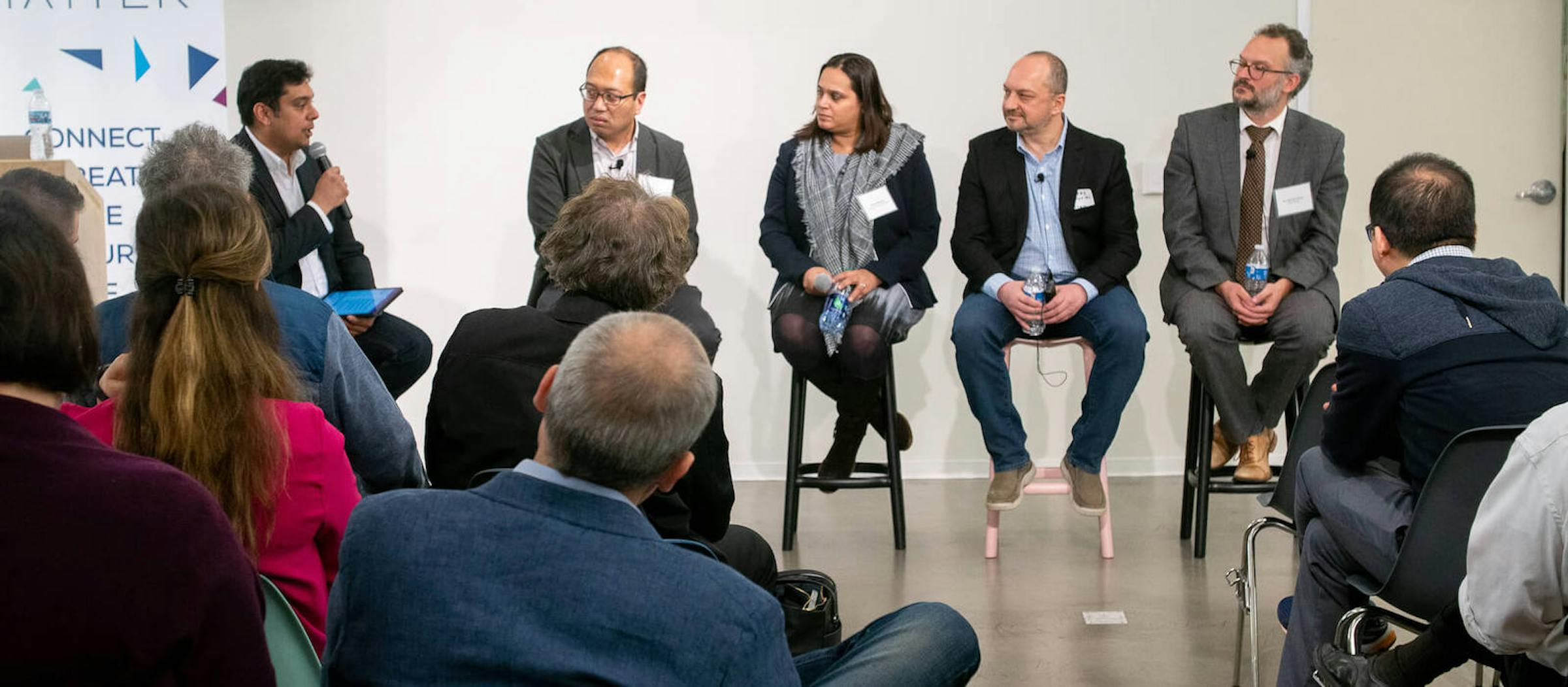Four applications of artificial intelligence (AI) in the neurosciences
Last fall, we teamed up with leaders from Anthem, the University of Illinois at Chicago (UIC), the University of Illinois at Urbana-Champaign and Mayo Clinic to produce the first AI and Neurosciences Summit at MATTER.
Happening now: @AnthemBCBS, @UIHealth & @MayoClinic join us for a full day summit to explore new applications of #AI in #neuroscience and their potential to drastically improve the experience and quality of care. #AINeuroSummit pic.twitter.com/wAJC10dpQ4
— MATTER (@MATTERhealth) October 24, 2019
This full-day summit convened 150 healthcare stakeholders from across the value chain to explore the current and future applications of AI in the diagnosis, monitoring and treatment of neurological conditions — and the collaborations and resources needed to drive broad-scale utilization of this technology.
We sat down with four subject matter experts after the event to ask: What applications of AI do you find the most promising or likely to deliver the most value to your customer?
1. Precision treatment for mental health
Dr. Mark Shapiro, AI Principal Engineer, Anthem
“What I find most promising and exciting is creating true personalization for mental health care. If we look at the success rate of different drugs with different patients — and bring in genetics data and other clinical data — we could determine what drugs would really work for each patient. That’s the most important to me, given the scale of [the mental health crisis].”
2. More holistic pharma solutions
Uma Makhija, Associate Director of Business Development, Otsuka Pharmaceuticals
“As a pharma company, we’re always thinking about what’s best for our patients. We have a traditional pharma business for treatment of the central nervous system (CNS) and nephrology, but we also want to take a more holistic lens and think about healthcare solutions as a whole to meet patients where they are on their journey. We think AI technology is going to be a big enabler of that [effort].”
In our final panel of the day, leaders from @MayoClinic, #OtsukaPharmaceuticals, @UIHealth & @AnthemBCBS led a conversation on scaling #AI tools in #Neuroscience. #AINeuroSummit pic.twitter.com/ot5uwAvIc9
— MATTER (@MATTERhealth) October 24, 2019
3. Improving workflow for clinicians
Dr. John Zulueta, Clinical Informatics Fellow at the Department of Psychiatry, UIC
“I do a fair amount of work on clinical efficiency operations, like trying to predict who’s going to show up for their appointment or not, or analyzing trends in referral patterns that we get. So there my customer is really the clinician, and… unfortunately, if you ask a lot of clinicians about how technology is used for them, their answer is that they do a lot for the technology: They spend a lot of time putting things into the EHR and they don’t really get a lot out of it. That’s where I think AI can make everything easier for them — easier for them to take care of their patients and easier to be more efficient with their work.”
4. Customizing treatment for patients
Arun Bhatia, Senior Director of Partner Engagement, MATTER
“In working with our partners here at MATTER, we’re finding that AI is playing a very influential role in applications where there is a lot of subjectivity in disease diagnosis, or there are many options to customize treatments for patients. Using AI and data pattern recognition to better diagnose disease, stratify patients and tailor a treatment plan that is most effective for them appears to be a clear value-add that AI is bringing to healthcare.”
Read more insights from the MATTER community.



